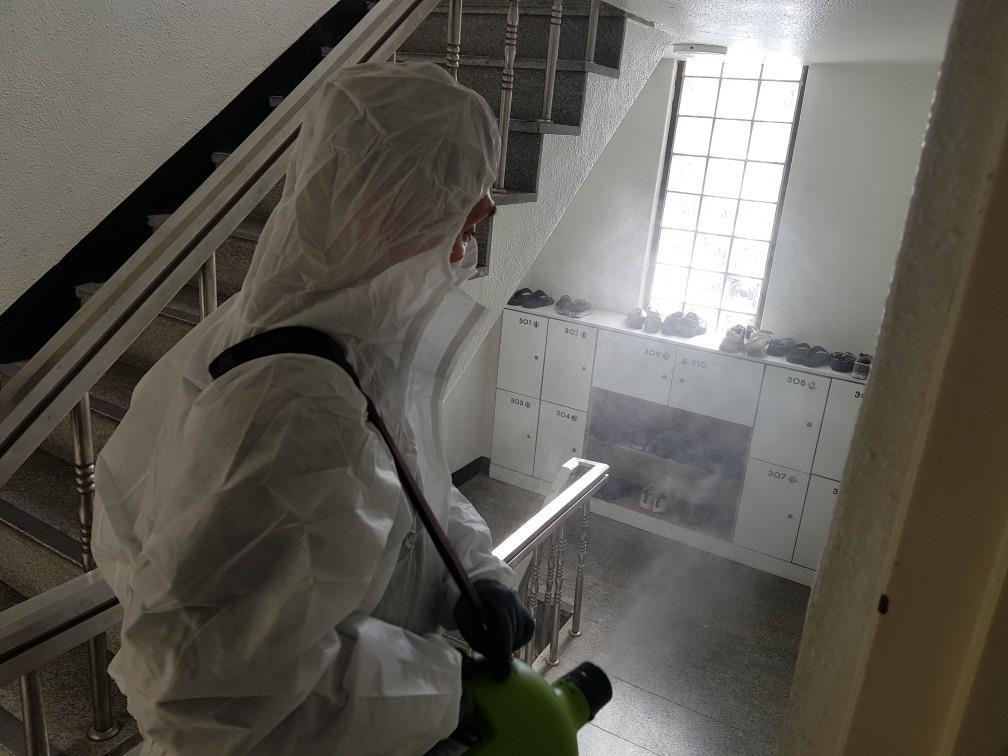Epidemiologists ask to dial down ‘virus paranoia’
Doctors say trust in experts, consume news on verified channels
By Kim ArinPublished : Feb. 10, 2020 - 15:21

Epidemiologists and preventive medicine specialists on Monday voiced concerns against “excessive” fear of the Wuhan coronavirus, asking for the public’s cooperation with and trust in disease control authorities and health experts.
“Disease control, health officials and medical providers alone cannot overcome the public health crisis,” the Korean Society of Epidemiology and the Korean Society for Preventive Medicine said in a joint statement, stressing the need for action at every level of society.
While the virus is new and a lot of unknowns remain to be solved, there was consensus among experts on the necessary preventive measures, the statement said.
“As public health scholars, we ask for your trust in our expertise and efforts to block the transmission of the virus in our communities.”
The medical societies said the biggest obstacles to tackling the new disease were dissemination of misinformation and fake news, panic and fearmongering, circulation of unscientific opinions, stigmatization of patients and their contacts and refusal of those subject to screening to cooperate with authorities.
The statement in particular pointed out an “inundation of unverified information online and on new media outlets,” which promoted unnecessary anxiety. “Trust information provided by experts via official channels,” it said.
Regarding calls for the restriction of entry for foreign nationals, the statement said such an approach went against the principles of reciprocity. Disease control efforts are not about exclusion, but protection and inclusion, it said.
This clashes with the Korean Medical Association stance arguing for a wider ban on travel to and from China.
In addition, extreme responses such as closing down facilities where infected persons had visited are unnecessary, and may lead to victim blaming, according to the societies.
Rules of prevention proven to be effective are washing hands with soap and running water, wearing face masks when having respiratory symptoms or fever, observing coughing etiquette, informing authorities of travel history to affected regions, and visiting designated health centers when there is likelihood of infection.
Individuals who have come in contact with confirmed patients or traveled to China or countries with reported cases of infection should report to the Korea Centers for Disease Prevention and Control or state health centers without delay, the doctor groups said.
By Kim Arin (arin@heraldcorp.com)







![[Graphic News] More Koreans say they plan long-distance trips this year](http://res.heraldm.com/phpwas/restmb_idxmake.php?idx=644&simg=/content/image/2024/04/17/20240417050828_0.gif&u=)
![[KH Explains] Hyundai's full hybrid edge to pay off amid slow transition to pure EVs](http://res.heraldm.com/phpwas/restmb_idxmake.php?idx=644&simg=/content/image/2024/04/18/20240418050645_0.jpg&u=20240419100350)






![[From the Scene] Monks, Buddhists hail return of remains of Buddhas](http://res.heraldm.com/phpwas/restmb_idxmake.php?idx=652&simg=/content/image/2024/04/19/20240419050617_0.jpg&u=20240419175937)

![[KH Explains] Hyundai's full hybrid edge to pay off amid slow transition to pure EVs](http://res.heraldm.com/phpwas/restmb_idxmake.php?idx=652&simg=/content/image/2024/04/18/20240418050645_0.jpg&u=20240419100350)

![[Today’s K-pop] Illit drops debut single remix](http://res.heraldm.com/phpwas/restmb_idxmake.php?idx=642&simg=/content/image/2024/04/19/20240419050612_0.jpg&u=)